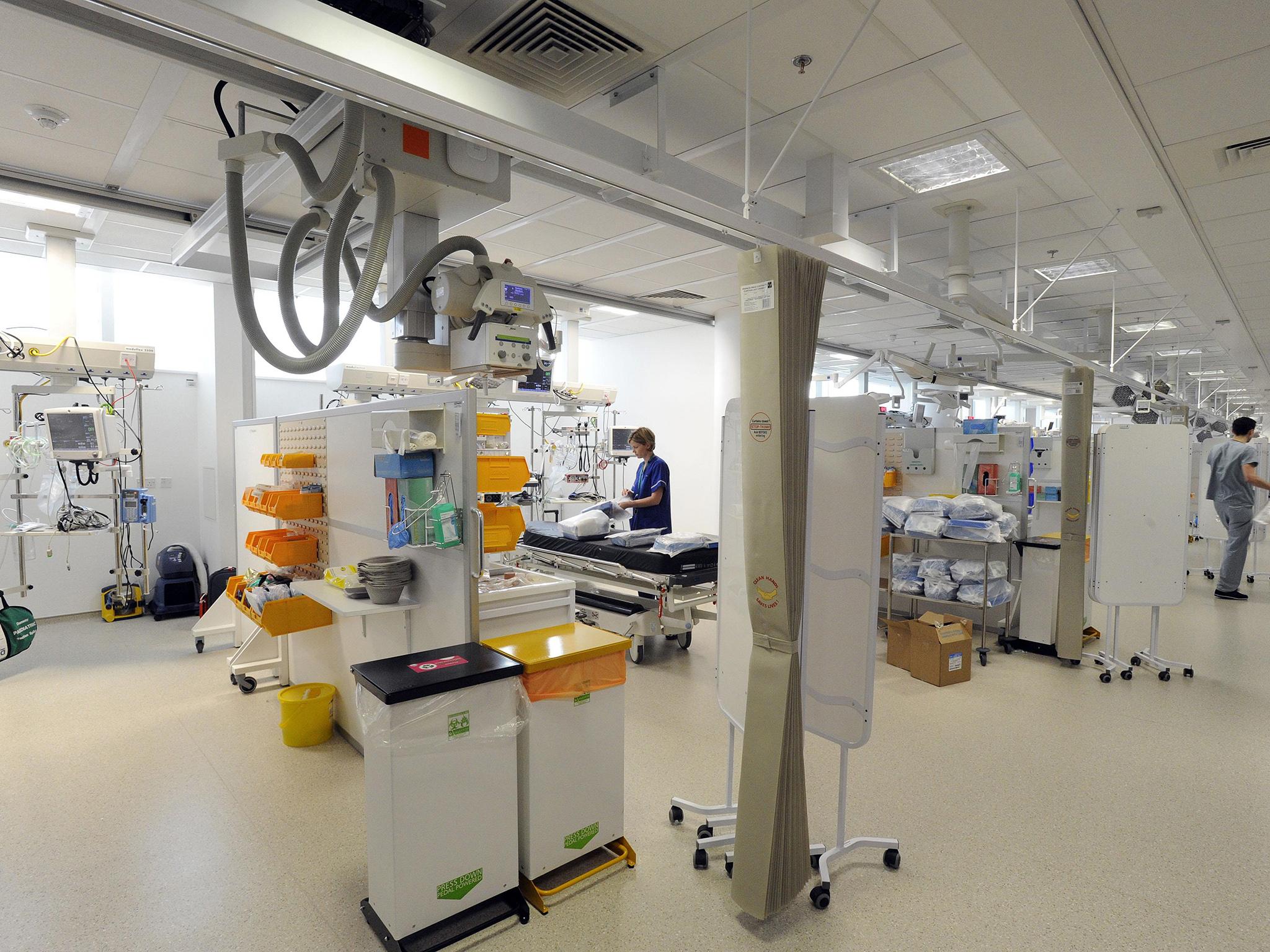We need to review the way major trauma treatment is paid for if we want to save our NHS
The NHS could be better off by £440m a year, if only we review caps on insurance claims

Your support helps us to tell the story
From reproductive rights to climate change to Big Tech, The Independent is on the ground when the story is developing. Whether it's investigating the financials of Elon Musk's pro-Trump PAC or producing our latest documentary, 'The A Word', which shines a light on the American women fighting for reproductive rights, we know how important it is to parse out the facts from the messaging.
At such a critical moment in US history, we need reporters on the ground. Your donation allows us to keep sending journalists to speak to both sides of the story.
The Independent is trusted by Americans across the entire political spectrum. And unlike many other quality news outlets, we choose not to lock Americans out of our reporting and analysis with paywalls. We believe quality journalism should be available to everyone, paid for by those who can afford it.
Your support makes all the difference.With longer waiting times and ever increasing funding shortages, it comes as no surprise to anyone that the NHS is under pressure. We’re all hoping for solutions, and one little known way we could inject around £440m into the service is to review and reform the way major trauma treatment is paid for.
Currently, the system puts most of the burden for paying for this treatment in the public purse, even in cases where there is a clear obligation on insurers to contribute. If we changed this, we could make a huge difference to NHS funding.
From at least the early 20th Century, workers’ compensation schemes and road traffic insurance rules recognised that when someone is injured and it is someone else’s fault, there ought to be a legal remedy for recovering the costs of treatment. This led to new insurance policies and products, culminating in the Sixties and Seventies in mandatory insurance rules for workplaces and for vehicle drivers.
So far, so good. Then in the early 2000s, as legislators sought to guard against so-called “compensation culture”, caps were introduced. Now, you may think (and I would agree with you) that both ideas are motivated by noble intentions. It is right to have insurance and legal mechanisms to pay for the cost of treating injuries. It is also right to make sure these mechanisms do not get out of control and cost more than necessary. But along the way, the caps have not kept up with the costs of medical care and the result is that the state is having to step in to pay for treatments that should rightly be covered by the insurers.
Whilst there are no official figures available, a conservative estimate of money that NHS major trauma centres spend on patients is around £16,000 per week per in-patient. But compensation to the NHS from insurers is capped at £5,600 per week, so the health service is picking up the bulk of the cost, and effectively subsidising the insurance companies. This £10,400 per patient per week subsidy is costing our health service – essentially, our government and taxpayers – around £440m.
There are other wrinkles to be ironed out too. For example, legislation currently allows for the NHS to recover capped costs for in-patient treatment (£800 a day for no longer than 8 weeks) or out-patient treatment (£600 per day, again for no longer than 8 weeks), but the NHS cannot claim for both in-patient and out-patient treatment for the same injured person.
In practice, treatment after a road accident or other major trauma typically involves being treated in hospital first, and then as the person recovers, being treated from home too. However, the obligation of the insurance company ends as the patient leaves hospital, and the NHS picks up the full bill after that.
These issues were not, in my view, created intentionally by the legislators who shaped the Health and Social Care (Communities Health and Standards) Act 2003. MPs were rightly concerned about making sure costs do not spiral out of control. But the unintended consequence has been to create a system that is now leaving the NHS to pick up the large bulk of the costs, in cases where insurance companies have the resources to contribute. The issues will be further compounded by the changes proposed within the prison and courts bill, which is likely to see a reduction in the number of cases brought and in turn a reduction in NHS injury costs recovery.
A review of the cost recovery system for major trauma treatment is overdue. The government should look at whether the caps on money the NHS can claim from insurers should be raised or abolished altogether. The result would be a more equitable spread of the costs of treatment, taking into account the high cost of medical treatment. Our strained health service could certainly do with the financial relief that this reform would provide.
Trevor Sterling is a partner at Moore Blatch Solicitors
Join our commenting forum
Join thought-provoking conversations, follow other Independent readers and see their replies
Comments